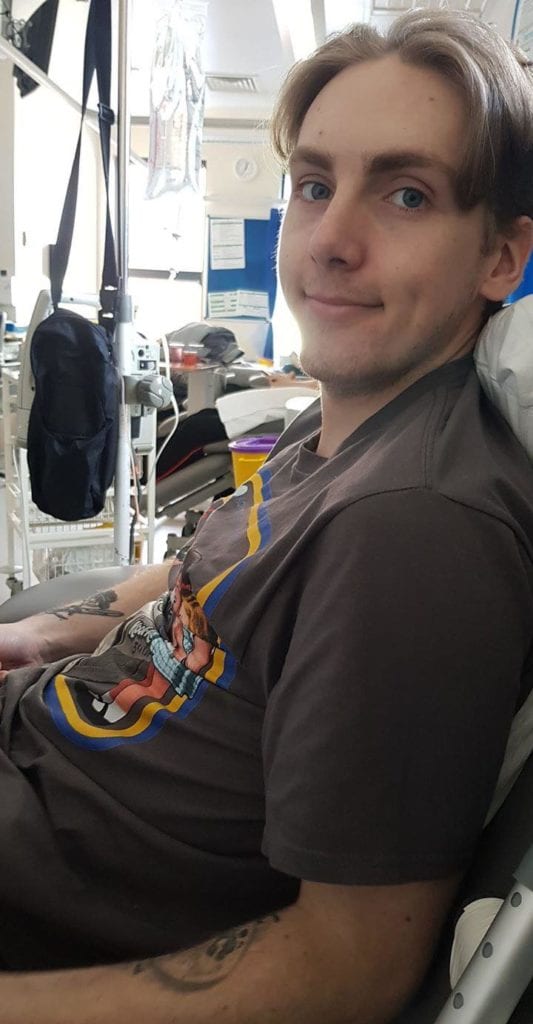“There are positives and you have to find them, as well as keep the little things in life close. You shouldn’t take the time you have with friends and family for granted.”
Oliver W.
Osteosarcoma hit me very quickly, out of nowhere. I was in class at university when I got a call saying I needed to come home for scans and an operation. My friend dropped me off in my hometown of Manchester, England, the following day — everything went from zero to a hundred so quickly.

A few months earlier, my leg had given way in the shower and I fell. I had a bad pain in my right leg and went to the walk-in centre. They said I had pulled something or torn a ligament, then advised me to take pain killers and rest.
Weeks went by and I was still not right, and the pain was getting worse. I went to the Accident + Emergency Hospital, and they said that I did not need any scans. Again, I was told I had pulled a ligament and that I should rest.
So, more time went by, and by then I was limping and unable to walk very far. I knew something was not right, but my family and I did not know what to do.
I was lucky, though. At the time, my mum worked in an orthopaedic outpatient’s clinic, and her colleagues agreed to see me. Finally, after three months of pain, I got the scans, which revealed I had a tumour on my right femur. I was referred to a specialist in an orthopaedic hospital who saw me within the week. There, I had a biopsy, which showed the tumour was an aggressive osteosarcoma.
A key thing with this type of sarcoma is that is it so hard to diagnose because no one expects the pain similar to a torn ligament to be as critical as a tumour. I have heard a lot of stories about people who have had trouble being diagnosed — there’s a real lack of osteosarcoma awareness out there — and, by the time they are, the tumour has spread.
My treatments were pretty bad. I was diagnosed a month before the COVID-19 pandemic, and so I wasn’t able to see friends and family in hospital. And my downtime at home was short-lived, as I got a lot of infections and, at one-point, I even got sepsis.
Fortunately, I had my surgery at the start of March 2020, and my family was able to see me, but then I went through a second operation in May 2020 on my own. I also went through seven months of chemo alone, which really took a toll on my mental health.
Luckily, a lot of the things I enjoy don’t involve a lot of active movement. I make music and films — at university, I studied film and film production — and my downtime normally consists of video games or watching ice hockey. I used to really enjoy skateboarding and playing a bit of football with friends, but it isn’t the end of the world that I can’t do that anymore due to my prosthesis. I can still do a lot of the things that make me happy, and I can still follow my aspirations in terms of career and — most importantly — I am alive.
I turned 21 while I was in hospital receiving treatment, and it was important to me to raise money for the Osteosarcoma Institute and bone cancer awareness. I know it is one of the rarer cancers, and the awareness for it is not as big as more commonly known cancers — so to raise awareness and share osteosarcoma stories is a big thing for me, helping people understand it and being able to diagnose it quicker. The pandemic made it difficult to host a proper fundraiser, so I started a Facebook fundraiser. Now I’ve partnered with the Osteosarcoma Institute on my second fundraiser.
I was extremely lucky to be diagnosed in such a short time. I started with symptoms in November 2019, diagnosed in February 2020 and finished my treatment by the end of October. And, on Christmas Eve, I became engaged to Carys, my girlfriend of eight years who has been with me through everything.
The best bit of advice I could probably give others is to always look for positives. I spent a lot of time thinking of possible bad outcomes when I was alone in hospital, but my family and friends helped keep me level-headed. I feel that’s something to keep in mind; that there are positives and you have to find them, as well as keep the little things in life close. You shouldn’t take the time you have with friends and family for granted.
Please make a donation to the Osteosarcoma Institute in honor of Oliver or consider hosting your own Facebook Fundraiser benefiting the OSI!

